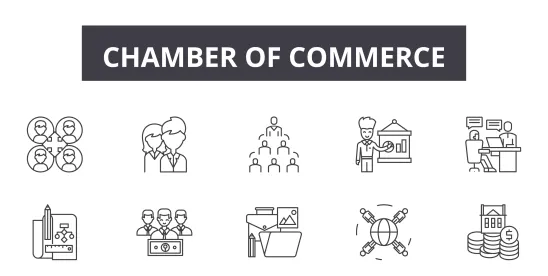We recently reported on the Federal Trade Commission’s (FTC) 3-2 vote to issue its final noncompete rule that, unless it is enjoined, would ban all new noncompetes and a majority of existing noncompetes (the Noncompete Rule). As expected, within hours of the FTC’s vote on the final noncompete rule, Ryan, LLC, a leading global tax services and software provider, filed a lawsuit challenging the Noncompete Rule, and shortly thereafter the Chamber of Commerce of the United States of America (the U.S. Chamber) followed suit, filing its own lawsuit seeking to vacate and set aside the Noncompete Rule in its entirety. Other lawsuits are likely to follow. Yesterday, the U.S. Chamber filed a motion seeking to stay the Noncompete Rule’s effective date, to preliminary enjoin its enforcement, or both.
In its essence, the U.S. Chamber’s lawsuit alleges that the FTC’s Noncompete Rule violates federal law in numerous ways. First, it alleges that the FTC lacks the authority to issue regulations as to “unfair methods of competition” because Congress has never empowered the FTC with general rulemaking authority. In that regard, the Complaint specifically cites to the major-questions doctrine that the United States Supreme Court has repeatedly invoked in recent years to reject similar attempts by administrative agencies to take unprecedented actions with vast economic and political significance based on ambiguous statutory text. Addressing the major-questions doctrine, the U.S. Supreme Court has instructed that it expects “Congress to speak clearly if it wishes to assign to an executive agency a decision ‘of vast economic and political significance.’” National Federation of Independent Business v. OSHA, 142 S. Ct. 661 (2022). In a separate opinion addressing an agency's authority to act, the Court further elaborated on the major-questions doctrine, holding that administrative agencies must be able to demonstrate “clear congressional authorization” when they claim the power to make decisions of vast “economic and political significance.” West Virginia v. EPA, 142 S. Ct. 2587 (2022).
Second, the U.S Chamber’s lawsuit alleges that even if the FTC has the authority to issue substantive regulations proscribing “unfair methods of competition,” the Noncompete Rule would still be unlawful because noncompete agreements are not categorically unlawful under the FTC Act. The Complaint specifically alleges that the economic and political significance of a nationwide noncompete ban “demonstrates that this is a question for Congress to decide, rather than an agency.”
Third, the Complaint alleges that the FTC’s Noncompete Rule is impermissibly retroactive. The allegation is that even if the FTC Act empowered the FTC to issue substantive rules related to “unfair methods of competition,” the FTC Act does not authorize retroactive rulemaking.
Finally, the U.S Chamber’s lawsuit alleges that the FTC’s Noncompete Rule is an arbitrary and capricious exercise of the FTC’s powers. In support of this allegation, the U.S. Chamber of Commerce states, among other things, that a “categorical ban on virtually all noncompetes amounts to a vast overhaul of the national economy[.]”
The Complaint seeks a declaratory judgment that the Noncompete Rule is arbitrary, capricious, or otherwise contrary to law under the Administrative Procedure Act (the APA). It seeks an order vacating and setting aside the Noncompete Rule in its entirety pursuant to the APA, and it seeks an order that permanently enjoins the FTC from enforcing the Noncompete Rule against those who are members of the named plaintiffs.
The U.S. Chamber’s lawsuit also includes as plaintiffs Business Roundtable, Texas Association of Business, and Longview Chamber of Commerce and was filed against the FTC and Lina Khan, in her official capacity as Chair of the FTC. The lawsuit was filed in the United States District Court for the Eastern District of Texas, Tyler Division.
Shortly after filing its lawsuit, the U.S. Chamber and other plaintiffs in that suit filed a motion that seeks a stay of the effective date of the Noncompete Rule and a preliminary injunction to enjoin enforcement of the Noncompete Rule. As required to obtain a preliminary injunction, the U.S. Chamber argues that the plaintiffs are likely to succeed on the merits because the Noncompete Rule exceeds the FTC’s statutory authority for three reasons. First, the FTC lacks the authority to prohibit unfair methods of competition through rulemaking. As we have previously reported and anticipated, the U.S Chamber relies heavily upon the major-questions doctrine, arguing that under Supreme Court precedence in both West Virginia and National Federation of Independent Business, the FTC “does not have anything remotely resembling clear congressional authorization to assert powers of such vast ‘political and economic significance.’”
Second, the FTC’s classification of all noncompete agreements as “unfair methods of competition” is contrary to Section 5 of the FTC Act. Third, the Noncompete Rule is unlawfully retroactive. In its essence, the plaintiffs argue that the court should preserve the centuries-old status quo of noncompete law and “leave the enforceability of noncompete agreements to state rather than federal law, pending resolution of this litigation.”
The motion further argues that the Noncompete Rule is the product of flawed decision-making because the Noncompete Rule is not supported by evidence, it ignores better alternatives, and the FTC’s cost-benefit analysis is flawed. The plaintiffs argue that a preliminary injunction should issue because they will be irreparably harmed if they are forced to comply with a regulation that is later held invalid and that on the day the Noncompete Rule takes effect, “millions of workers and businesses will instantly lose bargained-for contractual protections.” Finally, plaintiffs posit that the public interest supports preliminary relief, arguing that a stay and injunction would preserve the status quo and that every state will continue to police noncompete agreements under its own body of law.
The lawsuit filed by Ryan, LLC (the Ryan Complaint), which was filed in the United States District Court for the Northern District of Texas, alleges that the FTC’s action in promulgating the Noncompete Rule contravenes the FTC Act, violates the United States Constitution, and is arbitrary and capricious. The Ryan Complaint makes allegations similar to those contained in the U.S Chamber Complaint, and its allegations closely track the arguments made by the two dissenting FTC Commissioners.
The Ryan Complaint additionally alleges that the FTC Act itself is unconstitutional because it restricts the Executive Branch’s ability to remove Commissioners by granting them fixed terms and providing that they can be removed only for “inefficiency, neglect of duty, or malfeasance in office.” The argument is that the limitations on removal of FTC Commissioners violates Article II of the Constitution by impermissibly infringing upon the President’s “unrestricted removal power” of “lesser officers” within the Executive Branch. See Seila Law LLC v. CFPB, 140 S. Ct. 2183, 2197-2220 (2020).
* * *
As we previously reported, we believe that the litigation seeking to enjoin the Noncompete Rule will be successful and that the Noncompete Rule will not go into effect. At the very least, it is likely to take years for the Noncompete Rule to be work its way through the courts, including an inevitable appeal to the United States Court of Appeals for the Fifth Circuit. Given the importance of the issues involved, it is likely that the case will eventually be heard by the United States Supreme Court.







 />i
/>i
